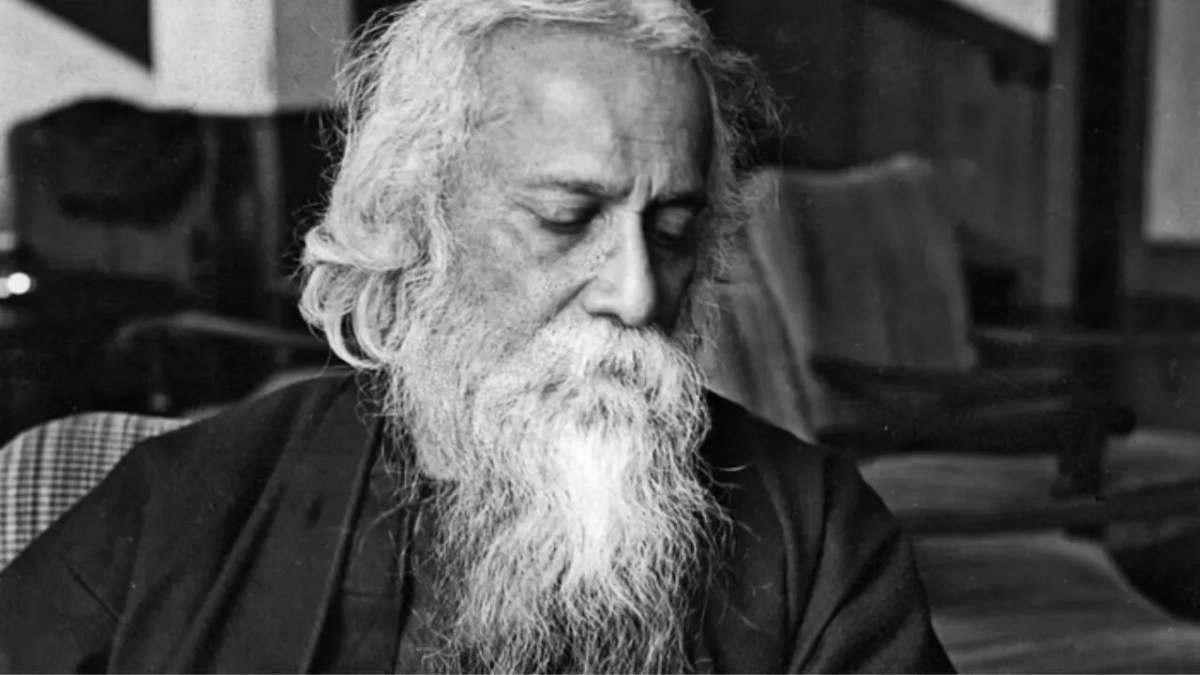Rabindranath Tagore was born on 7 May 1861 at Jodasanko Thakurbari in Kolkata. Today, the 164th birth anniversary of Tagore Saheb is being celebrated on Wednesday. Rabindranath Tagore had a deep connection with the film industry and also directed a film in 1932. Tagore’s direct relationship with the film industry was limited, but his actions and ideas have given Indian films a different perspective and depth. Now we will learn about Tagore’s contribution to cinema.
Film industry in India
The beginning began in 1913 and the first silent film was ‘Raja Harishchandra’ directed by Dada Saheb Phalke. Rabindranath Tagore was a thoughtful person who wrote many novels and plays. In 1932, Tagore Saheb made a silent film called ‘Natiir Pooja’ under his direction. The story of this film was based on a play written by Tagore itself. The shooting of this film, including Tagore Saheb was also in the lead role, was completed in just four days. Nitin Bose was the cinematographer of the film and Subodh Mitra was the editor. However, the film failed commercially.
There is a special relationship between Satyajit Ray and Rabindranath Tagore.
A unique relationship between Rabindranath Tagore and Satyajit Ray appears, as Satyajit Ray has made many films based on Tagore’s stories. In 1961, Satyajit Ray made a film called ‘Teen Kanya’. The story of this film was based on the three stories ‘The Postmaster’, ‘Monihara’ and ‘finished’ written by Tagore. Apart from this, Satyajit Ray also made films like ‘Charulata’ and ‘Ghar-Baire’ based on Tagore’s stories. At the same time, he also created a documentary based on Rabindranath Tagore in 1961.
Popular films based on the stories of Rabindranath Tagore.
Rabindranath Tagore Saheb has helped to give direction to the film industry indirectly, not directly but indirectly. Many films based on his stories, plays and novels have been made. Feminist issues emerge prominently in their stories. Many films have been made on his stories, including ‘Kabuliwala’, ‘Naukadubi’, ‘but’, ‘Chokar Bali’, ‘Char Chapter’ etc. Apart from this, in 1953, a film called ‘Do Bigha Zameen’ was made in Hindi cinema, directed by Bimal Roy. The story of this film was based on Rabindranath Tagore’s Bengali poem ‘Dui Bigha Zomi’. It was a popular film.
Tagore’s influence on Indian cinema
Rabindranath Tagore was a thinker and philosopher whose ideas have forced the film industry to think beyond business today. Tagore said that cinema is not only the medium of art performance, but also to highlight humanity and sensitivity. Tagore Sahab left this world in 1941, but his views still inspire the film industry.
